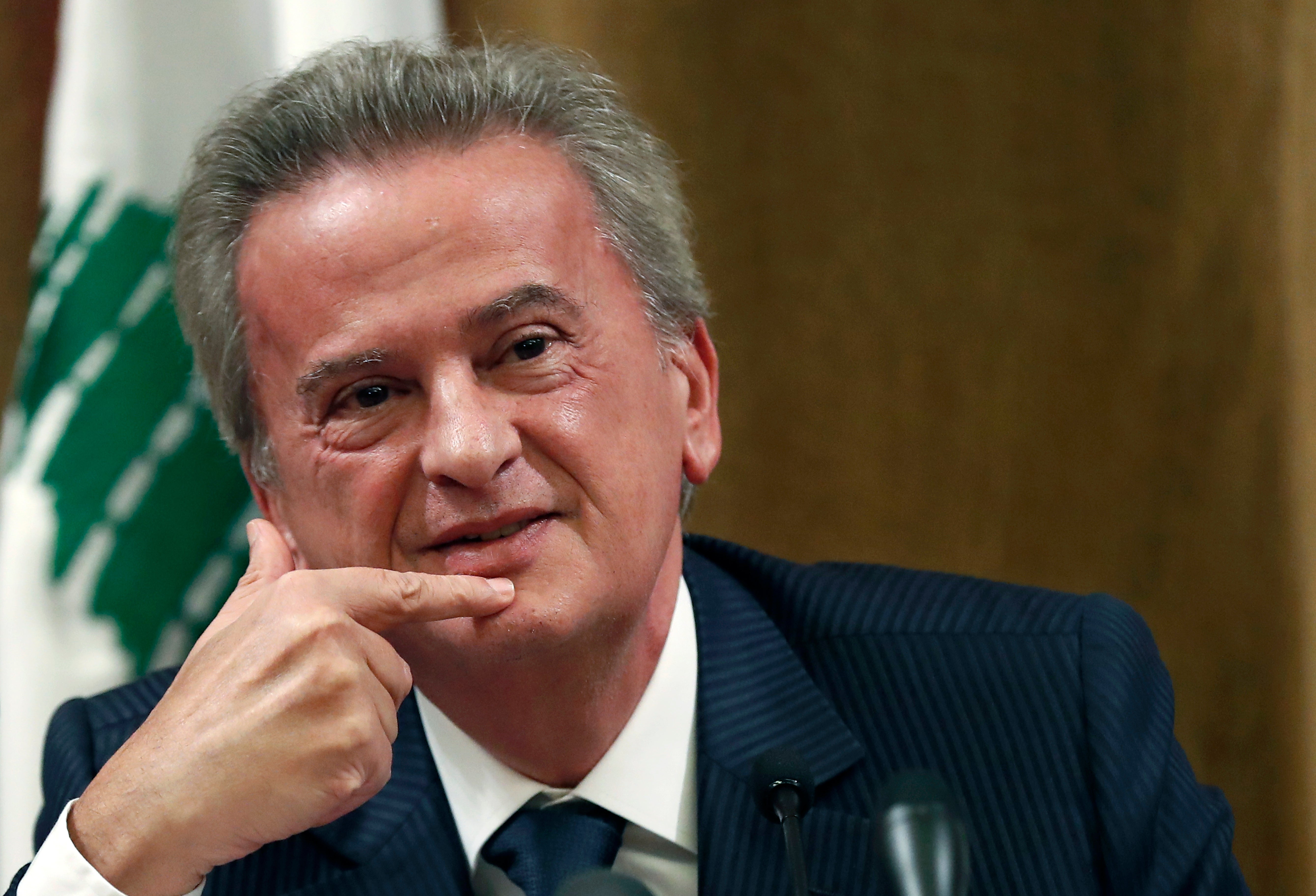Lebanon's interim central bank governor freezes assets of former chief and close associates
Lebanon’s interim central bank governor has frozen the accounts of the banks embattled former chief and close relatives and associates

Your support helps us to tell the story
From reproductive rights to climate change to Big Tech, The Independent is on the ground when the story is developing. Whether it's investigating the financials of Elon Musk's pro-Trump PAC or producing our latest documentary, 'The A Word', which shines a light on the American women fighting for reproductive rights, we know how important it is to parse out the facts from the messaging.
At such a critical moment in US history, we need reporters on the ground. Your donation allows us to keep sending journalists to speak to both sides of the story.
The Independent is trusted by Americans across the entire political spectrum. And unlike many other quality news outlets, we choose not to lock Americans out of our reporting and analysis with paywalls. We believe quality journalism should be available to everyone, paid for by those who can afford it.
Your support makes all the difference.Lebanon’s interim central bank governor Monday froze the accounts of the bank's embattled former chief and close relatives and associates days after the United States, United Kingdom and Canada slapped sanctions on them.
Wassim Mansouri’s decision was made public following a meeting of the central bank’s Special Investigation Commission. The commission is in charge of fighting money laundering and terrorism financing. It named former Gov. Riad Salameh, his son Nady, brother Raja, close associate Marianne Hoayek and former partner Anna Kosakova.
Mansouri ordered all accounts in Lebanese banks and financial institutions of the five individuals be frozen. It also lifts bank secrecy requirements of the individuals at the request of judicial authorities.
Riad Salameh's mobile phone was off when contacted for comment by The Associated Press.
Salameh, 73, ended his 30-year tenure on July 31 under a cloud of investigation and blame for his country’s historic economic crisis.
France, Germany, and Luxembourg are investigating Salameh and close associates over alleged financial crimes, including illicit enrichment and the laundering of $330 million. Paris and Berlin issued Interpol notices on Salameh in May, though Lebanon does not hand over its citizens to foreign countries.
The U.S. Treasury Department said last week that the U.S. coordinated the sanctions with the U.K. and Canada and that assets connected to Salameh would be frozen.
Salameh has repeatedly denied allegations of corruption, embezzlement and illicit enrichment. He insists that his wealth comes from inherited properties, investments and his previous job as an investment banker at Merrill Lynch.
Salameh is also being investigated in Lebanon. The Lebanese judiciary took his passports and imposed a travel ban soon after receiving the Interpol notices.
Salameh has criticized the European probe and said it was part of a media and political campaign to scapegoat him.
Once hailed as Lebanon’s guardian of financial stability, Salameh has been among the officials most blamed for policies that led to the country’s economic crisis, which has decimated the value of the Lebanese pound by around 90% against the U.S. dollar and sparked triple-digit inflation.
A forensic audit into Lebanon’s central bank by a New York-based company last week revealed yearslong misconduct by Salameh and $111 million in “illegitimate commissions.”
A copy of the 331-page document by Alvarez & Marsal, was seen by The Associated Press on Friday. The audit was among key demands by the international community and the International Monetary Fund, which over the years has increasingly lost confidence in crisis-hit Lebanon.